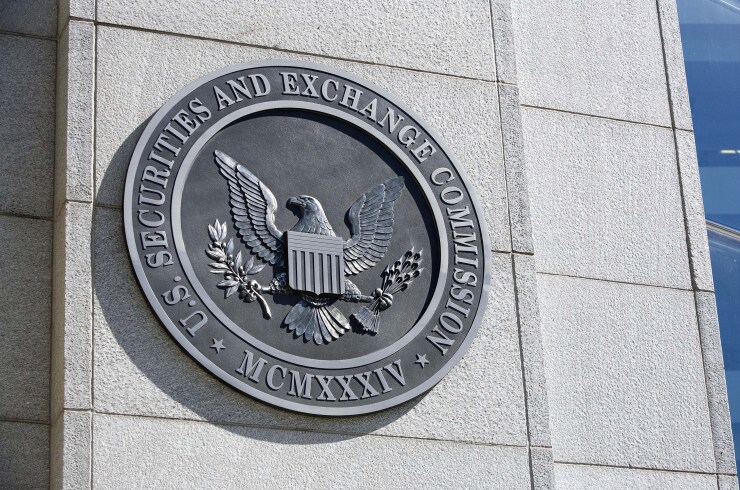MiMedx Group Inc. was going to be Parker H. Petit’s last act — the final chapter of a long career building and selling health care companies.
For years, the maker of skin grafts repeatedly beat its quarterly revenue targets. Its market value briefly touched $2 billion. At its headquarters in Marietta, Georgia, rumors swirled about an eventual sale to a bigger rival.
But Petit, 80, never got to sell the company. Instead, he was terminated as chief executive officer for cause last year after a months-long battle with short sellers. On Tuesday, an indictment was unsealed accusing him and his longtime deputy of securities fraud. They were also sued by the Securities and Exchange Commission for allegedly engaging in a “wide-ranging fraud” to inflate revenue.

The complaints paint a picture of increasingly desperate measures undertaken by MiMedx’s top two officers to hit sales goals year after year.
In one instance, they paid financial inducements and veiled them as consulting fees to persuade a customer to purchase more MiMedx products, prosecutors said. In another, Petit funneled money to a cash-strapped customer through a shell company set up by his adult children, they said. The complaints also allege that the men misled MiMedx’s auditors.
Bill Taylor, the Petit deputy who was MiMedx’s chief operating officer, was also named as a defendant in both cases. Michael Senken, the firm’s ex-chief financial officer, was named as a defendant in the SEC suit. Both left MiMedx last year.
“Petit, Taylor and others caused MiMedx to report fraudulently inflated revenue figures to the investing public” in the last three quarters of 2015 and in the company’s 2015 annual filings, federal prosecutors said in the indictment, which was made public Tuesday in Manhattan federal court.
In emailed statements, lawyers for Petit and Taylor disputed the allegations and said their clients acted with integrity.
“Today’s charges grow from a deeply flawed internal investigation by a self-interested audit committee, designed to appease government regulators by scapegoating executive management,” said Bill Weinreb, an attorney at Quinn Emanuel Urquhart & Sullivan LLP who represents Taylor.
Petit, in a statement provided by his attorney, also criticized the board’s investigation, which he said was prompted by “false allegations by short sellers,” and said federal prosecutors overreached in bringing the charges.
A MiMedx representative declined to comment. The SEC said Tuesday that MiMedx had agreed to pay $1.5 million to settle all charges of wrongdoing, without admitting or denying guilt. Senken didn’t respond to a LinkedIn message seeking comment.
Health entrepreneur
The indictment is yet another blow for Petit, who started his career as a health care entrepreneur five decades ago and came out of retirement in 2009 to take over MiMedx.
According to the federal charges, Petit and Taylor falsely recognized revenue from products sold to four distributors in Texas, Tennessee and Saudi Arabia in 2015, which helped the firm reach revenue targets in three of the four quarters that year.
One distributor was paid hundreds of thousands of dollars in cash and stock in exchange for agreeing to purchase grafts from MiMedx, the indictment said. The payments were recorded as consulting fees, even though no such services were ever provided, it said.
In two other instances, Petit and Taylor struck agreements with distributors and booked revenue for products that were shipped, even though there was an understanding that the products could be returned the following quarter, prosecutors said.
The indictment also detailed a $4.6 million sale to a nascent Texas distributor, which lacked both money to pay for the products and the facilities to properly store them. Instead, Petit and Taylor directed MiMedx to purchase freezers for the distributor to keep the products fresh. The complaint also said Petit arranged for a loan to the distributor with funds that came from a family trust and were funneled through a shell company set up by his three adult children and their spouses.
Side deals
The SEC outlined similar accusations, alleging that Petit and Taylor struck secret side arrangements with certain distributors that helped MiMedx inflate its revenue in the last three quarters of 2015 by as much as 14 percent. Senken was aware of at least one of the side deals, the suit said.
Both the Justice Department and the SEC said Petit and Taylor knowingly misled the audit committee of MiMedx’s board and its audit firm about several of the arrangements.
In May, MiMedx’s board reached a similar conclusion after it published a summary of an investigation conducted by an outside law firm. At that time, the board said the three former executives misled the board and auditors about business and accounting matters on several occasions. The internal probe also found that Petit had ordered the installation of a secret surveillance system to counter whistle-blowers. Petit and Taylor have disputed those accusations.
MiMedx’s success story began to unravel in 2017 after short sellers, including Marc Cohodes, accused the firm of a laundry list of wrongdoing and pointed to lawsuits by ex-employees saying the firm fraudulently boosted sales. In February 2018, Bloomberg News reported that the Justice Department was investigating MiMedx’s accounting and distribution practices. The company had previously disclosed the SEC investigation and had received subpoenas from officials at the U.S. Department of Veterans Affairs, a big MiMedx client.
Senken, Petit and Taylor stepped down months later. In September 2018, MiMedx said it had categorized the departures as terminations for cause and would claw back incentive compensation previously paid to the three. Earlier this year, Petit mounted a proxy fight to reclaim a board seat, but the effort failed.
The case is U.S. v. Petit, 19-cr-850, U.S. District Court, Southern District of New York (Manhattan).
— Anders Melin, Bob Van Voris and Chris Dolmetsch, with assistance from Greg Farrell
Bloomberg News





